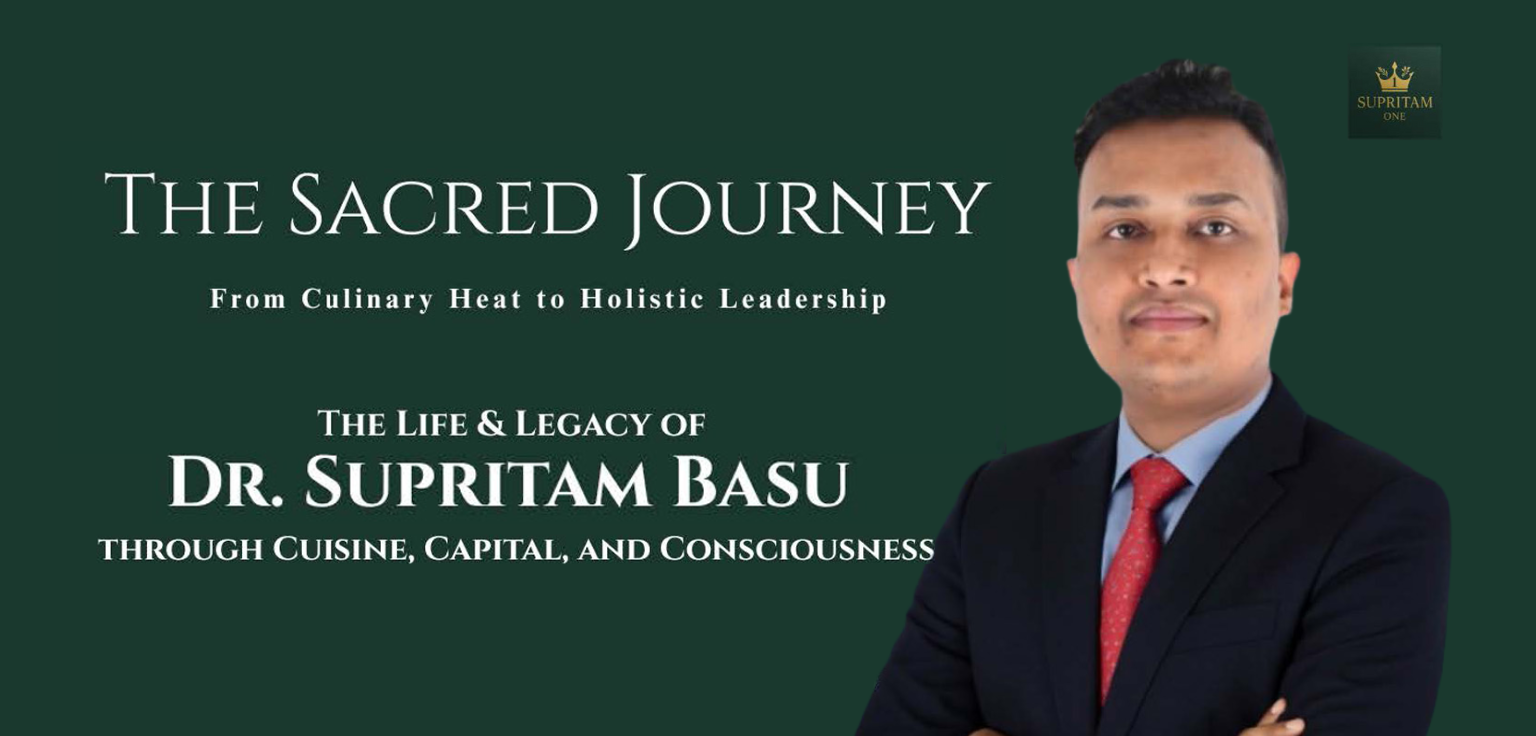
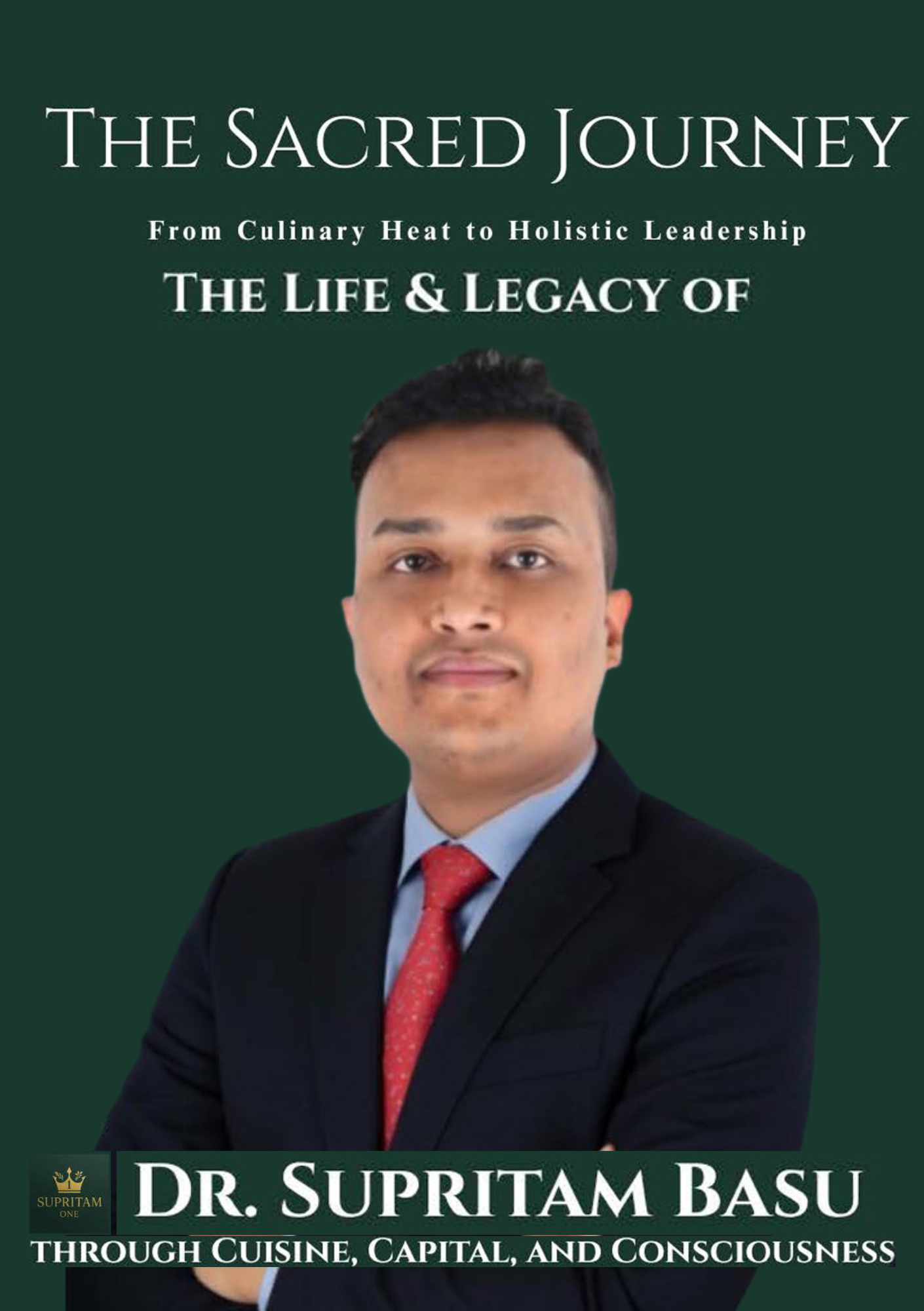
“Success is not the flame I chase—it’s the light I leave behind. My only ambition is to serve with truth, create with depth, and walk the path of dharma in everything I do.”- Dr. Supritam Bas
Dedication
This work is dedicated with deepest respect and heartfelt gratitude to the pillars of Dr. Supritam Basu’s life—those whose silent strength, unwavering love, and enduring belief shaped his journey.
To Honorary Subedar Major Milan Kumar Basu, his father, whose discipline, integrity, and quiet leadership instilled in him the values that guide every step of his path. During the COVID pandemic, when things were uncertain and income was tight, his father quietly stepped in—helping with EMIs, holding the weight of responsibilities, and standing by him like a steady shield.
To Mrs. Beauty Basu, his mother, whose warmth, wisdom, and nurturing presence remain the foundation of his compassion and creativity. Her passion for cooking, especially her mastery of biryani and other traditional Bengali dishes, profoundly shaped his culinary path. Supritam believes her intuitive grasp of spices, emotional bond with food, and innate sense of balance are qualities that live on in him, woven into his very DNA.
PHASE 1 The Roots of Life
“Great journeys don’t always begin with noise. Sometimes, they start with love, curiosity, and a quiet spark.”- Dr. Supritam Basu
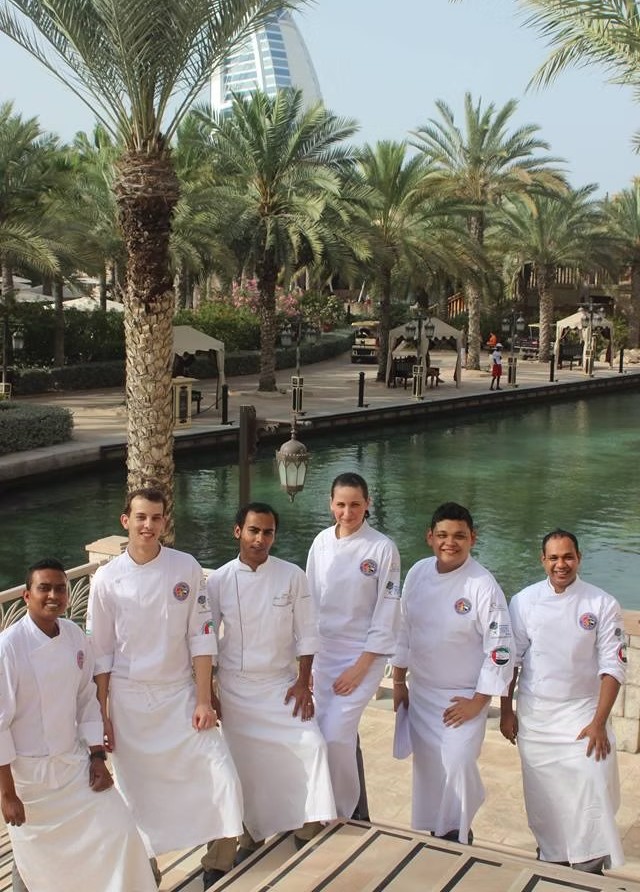
Supritam Basu’s story begins in the warm and colourful city of Jodhpur, Rajasthan, where he was born on 6th May 1991. His life didn’t start in the spotlight, and there were no big signs pointing to the path he’d one day walk. What shaped him most were the little things—a house full of love, the smell of home-cooked meals, quiet mornings, and a sense of calm discipline passed down through generations.
Growing up in a Bengali family with his father serving in the Indian Army, Supritam’s world was rooted in values, not luxuries. His dad didn’t speak much, but his actions spoke louder—he lived with a strong sense of duty and honesty that left a lasting impression. His mother, kind and thoughtful, brought a gentle energy to the home. She didn’t need to say much either—her quiet strength, emotional warmth, and steady presence taught him more about life than any classroom ever could.
Their home was simple, yet full of soul. Mornings began with the soft sounds of chants and the scent of incense. Meals were shared, not just eaten. Respect, gratitude, and faith weren’t lessons—they were just part of the everyday rhythm. In that kind of space, Supritam grew up learning what really matters: patience, kindness, and staying true to yourself.
One of Supritam’s earliest kitchen memories was waking up hungry at 5 AM as a child. Without hesitation, his grandmother lovingly made Luchi and sabzi, letting the little one watch her every move—and even help a bit. That warm, comforting morning did something special. It didn’t just fill his belly—it planted the first seed of what would grow into a lifelong love for cooking.
Another gift Supritam inherited early on was the love for travel. Being part of a family that shifted base every 2–3 years across India, he was exposed to different cultures, languages, and people from a very young age. It wasn’t just about new addresses—it was about learning how to adapt, listen, and connect. Over time, this love for exploring deepened further—through his student years, early work life, and later in his culinary journey. Cities changed, people changed, but one thing stayed constant: Supritam’s fascination with the diversity of life. His bike trips, especially, brought him close to nature and the raw beauty of the world. It was through these solo journeys that he found clarity, creativity, and a deeper emotional understanding of people and places.
Even as a young boy, there was something different about him—not in a loud or flashy way, but in how deeply he felt and noticed things. He was curious, not just about facts, but about feelings and meanings. He could sense shifts in mood, feel the weight of a silence, and often asked questions that made even adults stop and think. While other kids were chasing games or cartoons, Supritam was wondering why people prayed, what made a dish taste like home, or why certain smells made you feel safe.
He spent a lot of time in the kitchen watching his mother cook. It wasn’t just about food—it was about the emotion behind it. He saw how a simple meal could lift someone’s spirit, how a well-cooked dish could bring people together. That, in many ways, was his first lesson in hospitality—something that would go on to shape his life and career.
School didn’t bring rows of awards or shiny medals, but teachers always remembered him for the questions he asked—the ones no one else thought of. He wasn’t chasing marks. He was chasing meaning. He wanted to understand not just what something was, but why it mattered.
The city of Jodhpur itself quietly shaped his spirit. The vast desert, the old forts, the deep silence of the nights—these things taught him how to listen to the world and to himself. They showed him that strength isn’t always loud; sometimes, it lives in stillness.
When you look back at Supritam’s early years, it doesn’t feel like the beginning of a resume. It feels like the making of a quiet philosophy—one that values depth over display, people over prizes, and purpose over position. He never rushed to prove himself. He grew slowly, with roots running deep.
Those early days gave him a belief that’s stayed with him ever since:
True greatness doesn’t come from where you start—it comes from how much heart you put into the journey.
PHASE 2 The Journey of Knowledge
“Learning isn’t about collecting degrees. It’s about growing wiser, one curious step at a time.”- Dr. Supritam Basu
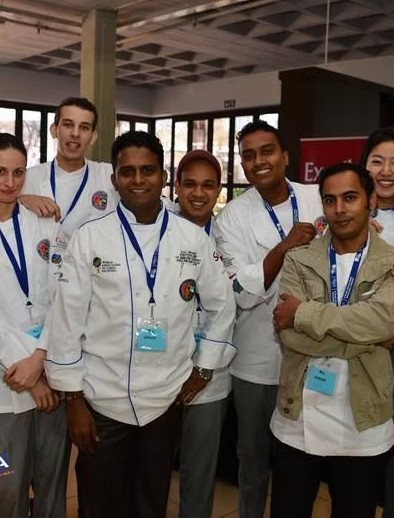
For Supritam Basu, education was never about chasing fame or fancy titles. It was something deeper—something personal. It was about understanding life better and finding ways to serve people with more heart. From hospitality and food to finance and wellness, every subject he studied was like another window opening to the world around him.
His school journey started at Kendriya Vidyalaya, where he studied from Class 1 to 12. It wasn’t just a place of learning—it was where his character quietly took shape. He wasn’t the kind to fight for top ranks. Instead, he absorbed life from all angles—through classroom debates, co-curriculars, cultural events, and the joy of playing basketball at the national level. For him, being on the court taught just as much about teamwork and leadership as being in a classroom did.
What truly made him stand out, even back then, was how he thought. He wasn’t satisfied with surface-level answers—he wanted to know the “why” behind everything. While others memorized equations, Supritam connected dots: how science explained certain rituals, how literature echoed ancient truths, how history shaped who we are. It was clear—he saw education not just as knowledge, but as a way to understand people, traditions, and life itself.
When most students were choosing the “safe” paths—engineering, medicine, or business—Supritam took a different route. He followed his heart and chose Hospitality Management. Not because it was easy, but because it felt real to him. For Supritam, hospitality wasn’t just about hotels or food. It was about culture, emotions, psychology, and making people feel seen and cared for.
He began his formal journey at Pailan School of International Studies, where he studied Bachelor’s in Hospitality Management. It was a natural fit. He didn’t just learn from books—he threw himself into practical, culinary events, planning committees, and hotel internships. Every corner of the industry fascinated him. The kitchen, especially, felt sacred. It wasn’t just about cooking—it was about connecting. Every dish had a story. Every service was an opportunity to bring joy.
Later, he decided to explore the bigger picture behind hospitality—how businesses work, how systems grow, how people are led. So, he pursued an MBA in Hospitality Management from NIBM Global. This added a new dimension to his thinking. Along with the creative side, he now had a strong grasp of leadership, financial planning, sustainability, and strategy. He joined the Hospitality Leadership Club, explored guest psychology, and graduated with an ‘A’—not just because he worked hard, but because he cared deeply about what he was learning.
Still, he wasn’t done. His love for food took him to the Neptune Institute of Management & Technology, where he completed a diploma in Food Technology. There, he dove into food safety, nutrition, shelf life, and sustainability. He led research projects, worked on innovation, and kept asking one important question: how can we feed people better?
One of the things that makes Supritam’s journey so unique is how wide he’s willing to go to learn. At one point, he even became a certified professional in capital markets through NISM. To others, this may have seemed random. But to him, it was important. He believed that creativity and service meant little without financial freedom. By learning how money moves, he made sure his dreams could be sustainable—not just inspiring.
Beyond formal education, Supritam turned to deeper knowledge. He read the Gita, the Bible, the Quran, and Buddhist texts. He wasn’t trying to be a scholar—he was just hungry to understand how people think, love, believe, and grow. He often said, “To feed someone is an act of nourishment; but to feed someone with awareness is an act of healing.” That one line speaks volumes about who he is.
Over the years, he’s earned more than 20 certifications—each one linked by one thing: his desire to serve with depth and awareness. From becoming a Young Chef Association member and completing a Master Course in Restaurant Management, to earning credentials in Food Safety, Life Longevity, and even Weight Loss Coaching—he never stops learning. Not to tick boxes, but to stay relevant, conscious, and ready.
To understand Supritam’s academic path is to understand a man who learns with purpose. Not for applause or approval—but because every piece of knowledge helps him become better at what he loves: serving people with care, awareness, and creativity.
His journey isn’t just impressive—it’s inspiring. Because it reminds us:
Education isn’t about collecting degrees.
It’s about staying curious, growing from within, and never forgetting why you started.
PHASE 3 The Culinary Story
“The apron may change, the country may change—but my reason stays the same: to cook with heart, and to keep learning.”- Dr. Supritam Basu
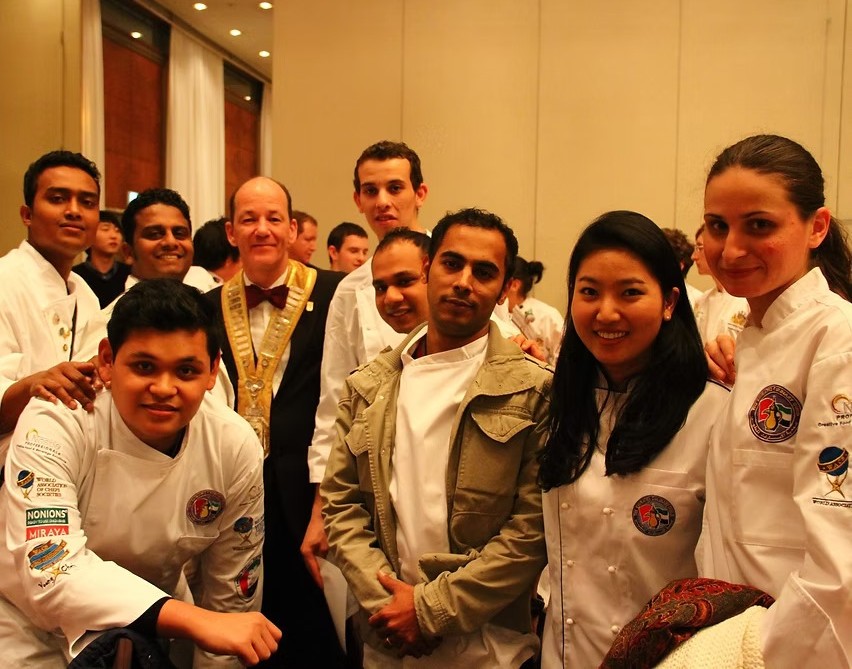
Supritam Basu’s professional journey feels like an extension of who he truly is—genuine, thoughtful, curious, and quietly determined. It’s not the story of someone following a set plan, but of someone carving his own way forward, through long hours, endless learning, and deep love for what he does. His path isn’t defined just by the big hotels or global awards—it’s shaped by how he carried himself through it all: calm in the chaos, focused in the frenzy, and always grounded in his love for food.
His first connection with food wasn’t in a fancy restaurant kitchen—it was at home. As a little boy, he would stand beside his mother, watching her cook, stir, and season with such care. These small, everyday moments stuck with him. He didn’t just watch what she cooked—he noticed how she served it, always with love and a sense of purpose. That early sense of warmth and intention became the foundation of everything he’d later do as a chef.
After finishing his studies in hospitality and food tech, Supritam began his career at Polo Floatel in Kolkata.
He was the new guy, doing all the jobs no one else wanted—cleaning fish, peeling veggies, scrubbing cutting boards. But he didn’t complain. He treated those tasks as small rituals. The early morning quiet, the rhythm of prep work, the buzz before service—he found meaning in all of it. Slowly, his voice began to rise through the kitchen—not loud, but steady.
A move to Lords Hotels in Bengaluru brought more heat, more pressure, and more chances to prove himself. The hours were hectic, the pace fast. But Supritam adjusted quickly, becoming the kind of chef others could count on when things got crazy. He learned that cooking at a high level wasn’t just about skill—it was about staying calm under pressure and holding your ground when things got tough.
His next stop was Taj Hotels in Chennai, where he joined KEFI—a fine-dining Mediterranean restaurant. This was new ground for him. He studied everything, from the brightness of citrus to the textures of grilled vegetables, to the quiet elegance of herbs. With only 25 guests a night, there was no room for error. Every plate had to be just right. That’s where his eye for plating developed, and his signature style—thoughtful, artistic, precise—really began to take shape.
Dubai came next, and with it, a whole new scale of experience. At Pierchic in Madinat Jumeirah—one of the city’s most exclusive seafood destinations—Supritam found himself in the heart of one of the busiest fine dining kitchens in the region. Working shoulder to shoulder with Michelin-trained chefs and hospitality leaders from around the world, he soaked up knowledge like a sponge. Every station, every task, every service became part of his growth.
It was here that his talents truly began to shine, both inside and outside the kitchen. During this time, Supritam won his first gold medal in a culinary competition—an unforgettable moment that brought him the title of “Rising Young Chef.” It wasn’t just a medal; it was proof that the long hours, the quiet discipline, and the relentless curiosity were taking him somewhere meaningful.
His success opened doors to the international stage. He was selected to represent the UAE in young chef competitions across Singapore, Abu Dhabi, South Korea, South Africa, and beyond. Competing against more than 100 chefs from 39 countries, Supritam brought home not just memories, but medals—both gold and silver—adding new chapters to a story that had only just begun. These were moments of pride, yes—but also of humility. Standing in global kitchens, surrounded by the best young talent from every corner of the world, he learned to listen, to observe, and to grow beyond borders.
What made this period even more special was that Supritam was one of only a handful of chefs—chosen from over 200 commis chefs in the region—to receive a professional culinary sponsorship from Emirates Academy. That support gave him access to structured training, international mentorship, and an even stronger foundation in classical and modern culinary arts. It wasn’t just about recipes or techniques—it was about learning how to think like a chef, plan like a leader, and create with purpose.
Then came Doha, with W Hotels. As a Demi Chef de Partie, he tackled everything—from buffet breakfasts to massive banquets. He joined Qatar Chef Professionals and really immersed himself in local flavours. Working across cultures, managing dietary needs, and delivering consistently good food taught him how to balance creativity with practical know-how.
His move to JW Marriott Marquis in Dubai was a turning point. Now a Chef de Partie, Supritam wasn’t just cooking—he was leading. He mentored younger chefs, planned kitchen operations, and delivered high-volume service with quiet confidence. He represented his hotel in international competitions, winning a silver medal at La Sial Culinaire in Abu Dhabi and showcasing his skills with the Chaine des Rotisseurs. This was where his leadership really started to shine.